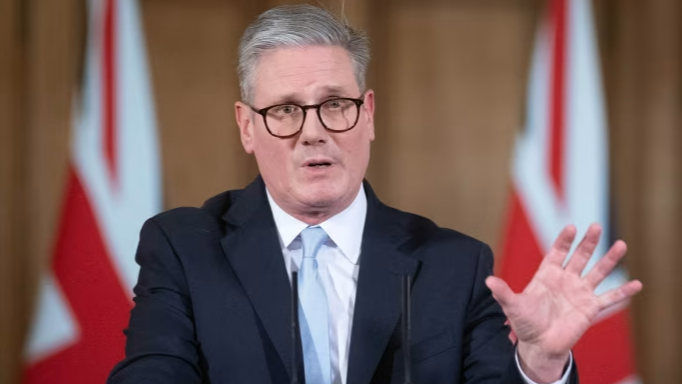Sir Keir Starmer is hitting the reset button on his leadership team, hoping to regain control as economic storm clouds gather.
With the Autumn Budget around the corner and public finances stretched thin, the Prime Minister has drafted in new faces – many of them known for their pro-tax positions – to tighten his grip on policy.
The move comes after months of criticism, chaotic messaging, and sinking poll numbers, with Nigel Farage’s Reform party now outpacing Labour in popularity.
Key Departures and New Appointments
One of the most dramatic exits is James Lyons, Starmer’s communications director, who announced his departure after less than a year.
His exit follows other high-profile departures, raising fresh questions about the PM’s judgment.
In his place, Tim Allan – once a Tony Blair adviser and later founder of a PR firm – is stepping in as Executive Director of Communications.
Treasury minister Darren Jones, meanwhile, has been promoted to the new role of Chief Secretary to the PM, while former Bank of England deputy governor Minouche Shafik has been hired as chief economic adviser.
Other notable moves include:
- Dan York-Smith becoming Principal Private Secretary.
- Vidhya Alakeson taking on expanded duties in policy and delivery.
- James Murray promoted to Chief Secretary to the Treasury.
Why the Overhaul Matters
Starmer’s shake-up isn’t just about personalities; it’s about policy direction.
His government is under pressure after blunders on welfare reforms and winter fuel allowance decisions, which sparked public anger.
Critics argue that his new team – branded “tax fanatics” by the Conservatives – may lean toward wealth taxes, inheritance taxes, and tougher levies on businesses and pensioners.
That could be politically risky.
A recent YouGov poll shows nearly two-thirds of Britons oppose further tax rises, and more than half want Chancellor Rachel Reeves out.
Spotlight on Darren Jones
Darren Jones, a rising Labour figure, now has one of the most powerful roles in government.
But his promotion comes with baggage.
He has been caught in media controversies before – comparing benefit cuts to docking his children’s pocket money and clashing on live TV over migrant statistics.
Colleagues admire his energy, but critics warn his gaffes could damage the government’s image if he continues to be put in front of cameras.
Enter Baroness Minouche Shafik
Perhaps the most eye-catching hire is Baroness Minouche Shafik, Starmer’s new economic adviser.
While her CV includes the Bank of England, the IMF, and academia, she is criticized by opponents for lacking real-world business experience.
She has been outspoken in support of wealth taxes and tighter rules on pensions and inheritance – positions that will likely shape Reeves’ difficult Budget.
Her record is controversial too: she faced heavy criticism in the US after stepping down as Columbia University’s president following protests over her handling of the Israel-Hamas conflict.
Tories Seize the Moment
The Conservatives are already painting the reshuffle as proof of chaos in No10.
Tory chairman Kevin Hollinrake compared it to “firefighters arguing about the hose while the house burns down,” pointing to rising inflation, debt, and borrowing costs.
They argue that Starmer’s new team will only push Britain deeper into a tax-heavy economy at a time when families are already struggling.
Facing the Autumn Budget
Rachel Reeves has perhaps the toughest job of all.
With a potential £50 billion hole in the public finances, she must find a way to balance spending demands with growing pressure for tax hikes.
Some Labour MPs are openly pushing for new wealth taxes, even as critics warn such moves could drive entrepreneurs out of the country.
Her choices this autumn will test not only her credibility but also Starmer’s ability to steady his leadership.
What Lies Ahead
Starmer’s reshuffle is an attempt to pull his premiership back from the brink.
But with polls against him, an angry public weary of tax rises, and a restless opposition, the reset may not be enough.
The big question now is whether his new team can avoid more blunders and present a convincing plan for growth – or whether this is just another chapter in a government struggling to find its footing.



